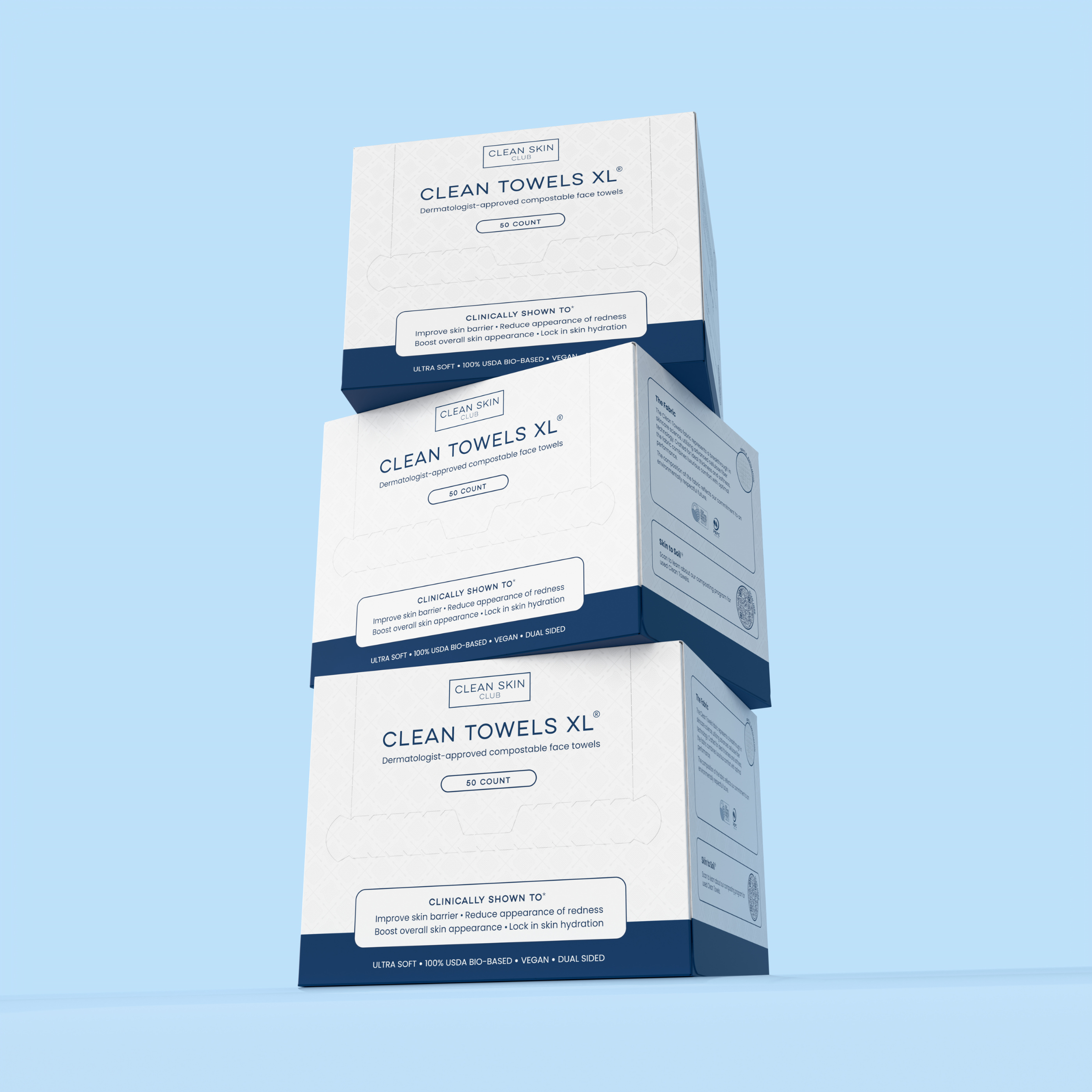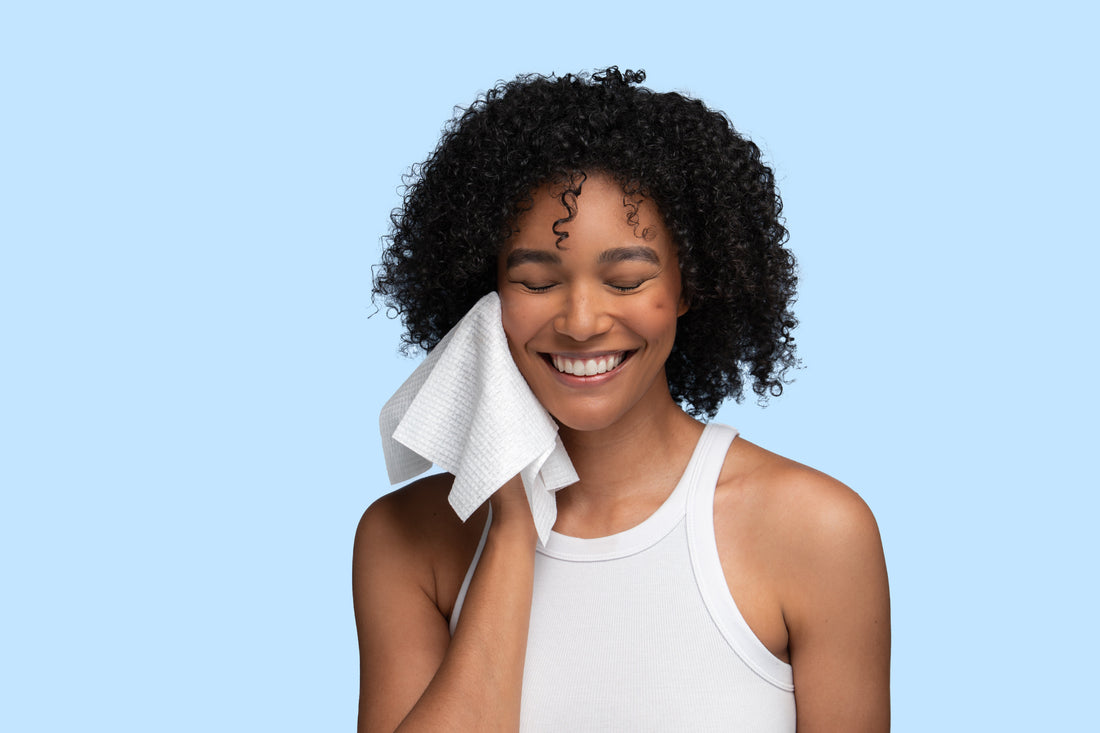Hey, I am Kim Bogash, Licensed Esthetician—and yes, I’ve spent years helping people ditch the bad ideas and embrace skin-care that actually works. Think of me as your skin’s personal trainer, guiding you away from common pitfalls and towards a routine that genuinely nurtures your complexion.
I’m going to review 10 things you should never put on your face, along with smart, skin-approved alternatives that will help you achieve your healthiest, most radiant skin yet.
1. Lemon Juice
I appreciate the thought here – it’s full of Vitamin C - but far too acidic for your skin’s delicate balance. The pH of lemon juice is highly acidic (around 2-3), which can severely disrupt your skin's natural protective barrier, leading to irritation, redness, and increased sun sensitivity (phytophotodermatitis). In some cases, it can even cause chemical burns and post-inflammatory hyperpigmentation, leaving dark spots that are difficult to fade.
Instead, use: A stabilized vitamin C serum. These formulations deliver the brightening and antioxidant benefits of vitamin C in a controlled, skin-friendly manner, often combined with other beneficial ingredients like ferulic acid or vitamin E for enhanced efficacy and stability. Look for L-ascorbic acid, THD ascorbate, or magnesium ascorbyl phosphate.
2. Toothpaste
I have to admit that I fell victim to this one thanks to all of those teen magazines I read more than 2 decades ago. Unfortunately, this is totally a myth. While it might feel like toothpaste dries out a pimple, it does so by irritating your skin. Toothpaste contains harsh ingredients like menthol, baking soda, alcohol, and strong detergents that are designed for teeth, not delicate facial skin. These ingredients strip moisture, inflame the skin, and can cause significant dryness, flaking, and even chemical burns around the pimple, ultimately prolonging healing and potentially leading to more visible scarring.
Swap it out for: A targeted spot treatment with salicylic acid (BHA) or benzoyl peroxide. Salicylic acid gently exfoliates inside the pore to clear blockages, while benzoyl peroxide kills acne-causing bacteria. Both are far more effective and less damaging than toothpaste, promoting faster healing without the harsh side effects.
3. Coconut Oil
Smells like summer, but clogs pores like a pro. Coconut oil is highly comedogenic, meaning it has a strong tendency to block pores. Its high concentration of saturated fatty acids can create a film on the skin's surface, trapping dead skin cells and sebum, which then leads to breakouts—especially if you're acne-prone or have oily skin.
Instead, opt for: Non-comedogenic oils like squalane oil (which is biomimetic, mimicking your skin's natural oils), jojoba oil (structurally similar to human sebum), or hemp seed oil. These oils provide excellent hydration and nourishment without the risk of clogging pores, making them much safer choices for facial moisturizing.
4. Body Lotion
Your face deserves better than body-only formulas. Body lotions are often formulated with heavier emollients, occlusive ingredients, and higher concentrations of fragrance designed for the thicker, less sensitive skin on your body. These ingredients can be too rich for facial skin, leading to clogged pores, breakouts, and irritation, especially for sensitive complexions. The added fragrances can also be significant irritants and allergens for facial skin.
Invest in: A moisturizer designed specifically for facial skin. These products are formulated with lighter textures, non-comedogenic ingredients, and often contain beneficial active ingredients like hyaluronic acid, ceramides, or peptides to support the skin barrier without overwhelming it.
5. Hot Water
Feels luxurious—but it strips natural oils and weakens your barrier. Washing your face with hot water can dissolve the natural lipids in your skin's protective barrier, leading to excessive dryness, tightness, and increased sensitivity. This can also exacerbate conditions like rosacea and make your skin more vulnerable to environmental damage and irritation.
For a clean, hydrated finish: Cleanse with lukewarm or even cool water. This temperature is effective at removing dirt and impurities without stripping your skin. Immediately follow with a hydrating serum (like one containing hyaluronic acid) to replenish moisture and help maintain your skin's healthy balance.
6. Essential Oils (Undiluted)
Natural doesn’t always mean safe. Essential oils are highly concentrated plant extracts that can be incredibly potent. When applied undiluted, they can cause severe skin irritation, contact dermatitis, allergic reactions, photosensitivity, and even chemical burns. Just because something is "natural" doesn't mean it's safe for direct skin application. Many essential oils also have different chemical compositions that can react negatively with your skin.
Only use them: Within properly formulated skincare products where they are precisely diluted and often combined with carrier oils or other ingredients that mitigate their potency. Always perform a patch test when introducing new products, especially those containing essential oils, to ensure your skin doesn't react negatively.
7. Sugar Scrubs
Those jagged granules are basically micro-sandpaper—tearing up your skin. While manual exfoliation can be beneficial, sugar crystals have sharp, irregular edges that create micro-tears and abrasions on the skin's surface. This compromises your skin's barrier, leading to redness, inflammation, sensitivity, and even potential infection. This damage is often invisible to the naked eye but can accumulate over time.
Instead, choose: Gentle chemical exfoliants (like AHAs such as lactic or glycolic acid, or BHAs like salicylic acid) or physical exfoliants with soft, uniform beads (like jojoba beads). Chemical exfoliants dissolve dead skin cells without physical scrubbing, while gentle bead-based scrubs provide smooth, safe cell turnover without damaging the skin barrier.
8. Glue (DIY ‘Peel-Off’ Masks)
We’ve all seen the viral videos—and all I have to say is: NOPE. Using household glue (like Elmer's or similar adhesives) on your face is incredibly risky. Glue can damage your skin's delicate barrier, strip away natural oils, and cause severe irritation, redness, and allergic reactions. It's not designed for skin contact and can contain chemicals that are harmful or sensitizing. Plus, these DIY masks often don't deliver any actual skincare benefits.
Choose instead: Clay or enzyme masks specifically formulated for facial use. Clay masks draw out impurities and absorb excess oil, while enzyme masks gently exfoliate using fruit enzymes. These are designed to be safe, effective, and beneficial for your skin.
9. Your Bath Towel
Surprise! Bath towels can harbor bacteria, are way too rough, and sabotage even the cleanest routine. Even freshly laundered bath towels can contain residual detergents that can irritate sensitive facial skin. More importantly, their coarse fibers can be too abrasive for delicate facial skin, causing friction, micro-tears, and irritation. Plus, they can harbor bacteria and fungi if not dried properly, reintroducing impurities to your freshly cleansed face.
Upgrade to: Clean Towels XL by Clean Skin Club! They’re super soft, single-use, and specifically designed to be gentle and barrier-friendly for your face. Using a fresh, clean towel every time ensures you're not reintroducing bacteria or causing unnecessary friction. Just what an esthetician ordered for a truly clean canvas.
10. Your Ex’s Skincare Advice
If they say 12-in-1 body wash = miracle product, don’t listen. Skincare should be personalized and science-backed—not based on someone's leftovers or random internet claims. Everyone's skin is unique, with different concerns, needs, and sensitivities. Relying on anecdotal advice from someone who isn't a skincare professional can lead to product overload, irritation, and ultimately, ineffective results.
Get a pro assessment or research active ingredients before committing. Consult with a licensed esthetician or dermatologist who can analyze your skin and recommend a tailored routine. Educate yourself on active ingredients and how they work to make informed decisions about your skincare.
Why It Matters: Building Your Best Skin
Healthy, glowing skin isn’t about following trends or quick fixes—it’s about consistently protecting your skin barrier, choosing effective active ingredients, and being patient. No one starts with a perfect routine, but making informed choices is crucial.
Once you eliminate these 10 offenders and introduce skin-smart habits, you’ll start to build brightness, resilience, and lasting confidence in your complexion. Remember, skincare is a journey, not a destination.
Thank you for reading!
This article of the Skinsider Scoop was graciously written by Licensed Esthetician, Kim Bogash and edited by the Clean Skin Club team. If you're interested in more from Kim, please shoot us an email, and follow her Instagram - @headtotoebykimbo



